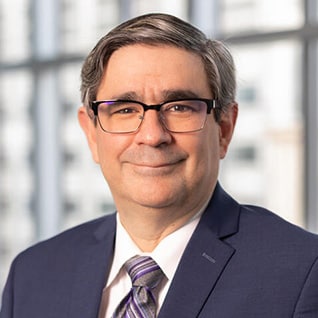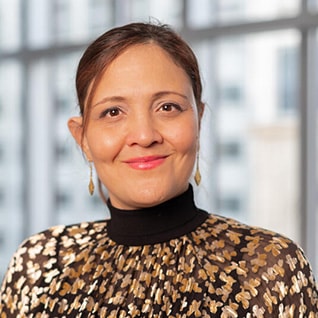/prod01/channel_2/media/mccms/content-assets/academics/residencies-and-fellowships/genitourinary-pathology-fellowship-minnesota/meet-the-faculty/rafael-jimenez-md-mha-318x-WF1523116_0003.jpg)
Rafael Jimenez, M.D., M.H.A.
Program Director
/prod01/channel_2/media/mccms/content-assets/academics/residencies-and-fellowships/genitourinary-pathology-fellowship-minnesota/meet-the-faculty/mccms-genitourinary-pathology-fellowship-1024X512-WF1523116_0001.jpg)
Mayo Clinic’s Department of Laboratory Medicine and Pathology in Rochester, Minnesota, is one of the largest clinical laboratories in the world. A highly skilled team of medical professionals including physicians, scientists, medical technologists, medical technicians, lab assistants, biologists, chemists, microbiologists, geneticists, and other specialists work collaboratively.
Mayo Clinic Laboratories is the referral center for Mayo Clinic. Mayo Clinic Laboratories specializes in esoteric laboratory testing for health care organizations throughout the United States and around the world. Mayo Clinic Laboratories’ mission is to support the local delivery of laboratory services through the provision of exceptional reference laboratory services and by providing support services that facilitate and augment community integration efforts.
The Division of Anatomic Pathology at Mayo Clinic's campus in Rochester, Minnesota, has more than 60 pathologists, with subspecialty expertise covering the entire field of surgical pathology. The division's faculty is organized around working groups dedicated to subspecialty areas, as well as general areas such as the frozen section lab, autopsy, and cytology.
The division is supported by full-service laboratories in:
Faculty members for Mayo Clinic's Genitourinary Pathology Fellowship are:

Thank you for your interest in our program. We believe we have one of the best genitourinary fellowships in the country. The breadth of material and volumes in our practice provide an immersive setting for our fellows, not only to become competent in the handling of routine genitourinary cases but to develop expertise in uncommon and rare entities.
Our curriculum encompasses many hands-on experiences and allows the fellows to progress in responsibility and independence in the sign-out of genitourinary specimens. Our fellows participate in every aspect of every case, including preliminary assessment, selection and integration of ancillary studies, and consulting with other subspecialty experts if needed.
The consult service provides additional exposure to diagnostically challenging material and allows the fellow to participate in cases from the perspective of nationally recognized genitourinary experts. The close collaborations we have with other colleagues in anatomic pathology, molecular pathology, hematopathology, and molecular genetics are unique to our training.
 Our core faculty are very engaged in education and research and have additional expertise in several other complementary subspecialties, including molecular, breast, renal, neuropathology, endocrine, and head and neck pathology. Our fellows are also involved in presenting at tumor boards and intradepartmental conferences and have the option to participate in several educational lectures and conferences available to the residency program.
Our core faculty are very engaged in education and research and have additional expertise in several other complementary subspecialties, including molecular, breast, renal, neuropathology, endocrine, and head and neck pathology. Our fellows are also involved in presenting at tumor boards and intradepartmental conferences and have the option to participate in several educational lectures and conferences available to the residency program.
Mayo Clinic is a unique workplace where the interests of the patient are at the center of all we do, which fosters deep collaboration and teamwork with our clinical colleagues.
Take a moment to look around this website to learn more about what we have to offer and reach out with any questions you might have about the Genitourinary Pathology Fellowship.
Rafael Jimenez, M.D., M.H.A.
Professor of Laboratory Medicine and Pathology
Program Director
Loren Herrera Hernandez, M.D.
Assistant Professor of Laboratory Medicine and Pathology
Associate Program Director
One of the greatest advantages of training at Mayo Clinic is the approachability, accessibility, and collegiality of the faculty. Our faculty are committed to teaching and facilitating the growth of medical knowledge. Many of our faculty members have published and lectured extensively and are highly regarded in their fields.
Fellows are assigned dedicated faculty mentors who can provide comprehensive educational advice and personal support. Trainees meet with their mentors periodically throughout the fellowship to review progress and career goals and ensure that their educational needs are being met. Mentors also serve as a contact point for introducing fellows and their families to Rochester, Minnesota, and the Mayo Clinic system.
Many prominent professors visit Mayo Clinic each year. They present their work during lectures and participate in grand rounds and informal discussions with trainees. Fellows are encouraged to take full advantage of these educational opportunities.